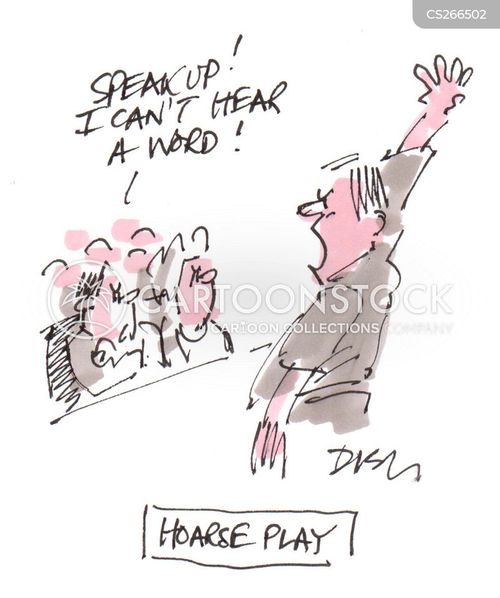
/what-is-laryngitis-1191936_FINAL-5c3b95a9c9e77c0001c7de7e.png)
Your family doctor (GP) will listen to the story of your hoarseness and any other symptoms you have and will often know your family and medical history. How is hoarseness understood and evaluated by the doctor? The medical term dysphonia means a change in the voice, including hoarseness, and the similar term aphonia means complete loss of voice (usually reduction to a tiny whisper). Hoarseness may be part of a neurological disease such as Parkinson disease, motor neurone disease or stroke.ĭirect damage to the neck and larynx - such as may occur sometimes in a serious road traffic or industrial accidents - may produce hoarseness and permanent voice change. These require investigation in hospital and may involve seeing a specialist other than an ENT specialist, such as a neurologist. There are other rare causes of hoarseness such as paralysis of the important nerves which supply the larynx from the brain. This is absolutely necessary for all smokers. Anyone with a problem with hoarseness lasting longer than three weeks MUST see the family doctor. It is yet another major life-threatening cancer which can be almost (more than 95%) avoided by simply not smoking, or stopping as soon as possible (before 30 years of age). Delayed treatment is much more difficult and less successful. Cancer of the larynx (voice box) occurs almost entirely in smokers and must be treated as early as possible. Reflux of acid from the stomach, often called gastro-oesophageal or laryngo-pharyngeal reflux, is thought to be an important factor in causing irritation of the vocal folds and larynx, producing hoarseness (particularly in overweight patients who are more prone to reflux).īenign tumours (growths) and more serious malignant tumours (cancer) usually cause progressive worsening of the voice.

These swellings can cause longstanding and more serious hoarseness requiring referral to hospital and assessment and treatment by speech and language therapists and laryngologists. The swelling may become localised to certain areas of the vocal folds in the larynx, producing either nodules, polyps or Reinke’s oedema.

This swelling is more common in people who also smoke and drink. Overuse of the voice, shouting, or repeated throat clearing may cause swelling of the vocal folds and produce hoarseness. When they produce swelling of the vocal folds in the larynx it alters our voice and this is laryngitis. There are many types of these cold viruses and others too (like influenza and mumps) which can all infect our upper respiratory tract. The commonest viruses are those which cause what we call a 'cold'. A sudden change requires a visit to the doctor in most circumstances.Īlthough there are many causes of hoarseness, the most common is a simple viral infection of our nose, throat, larynx and windpipe (all these areas together are called the upper respiratory tract). In our older age, beyond 70 years and more, our speaking and singing voices may naturally become changed and weaker but this happens gradually. Voice change is natural in children as they grow older, particularly in boys during puberty (usually between 10 and 15 years of age) as their larynx and its vocal folds increase in size. If we have serious problems with our breathing this can affect the voice because we require normal expiration (breathing out from our lungs) to power the vocal fold vibration to produce sound. So, although hoarseness caused by a problem with our vocal folds is common, change in other structures, such as the tongue, can also alter our voice. The vibration of the vocal folds produces sound which we turn into speech by using the rest of our throat, tongue, teeth and lips (all together known as the vocal tract). Normally, when we talk or sing our vocal folds come together and vibrate as we are breathing out. The larynx lies in our neck at the top of the windpipe (trachea) from our lungs. Hoarseness is due to something altering the vocal folds (often called vocal cords) in our larynx (voice box), so that they are not working properly. There are many causes of hoarseness but most of them are not serious problems and get better quickly with some simple advice. Different descriptions are used by patients to describe these changes in their voice which may have become more 'rough','raspy',”creaky','squeaky“, 'breathy', etc. It may have become more strained, requiring more effort to speak, and may have altered in character. It may have changed in quality becoming higher or lower (pitch).

The voice may have altered in its volume (loudness) and become weaker. The word hoarseness is usually used to describe a change in our voice. The change may be very different from one patient to another. Hoarseness or change in the voice: What is laryngitis?


 0 kommentar(er)
0 kommentar(er)
